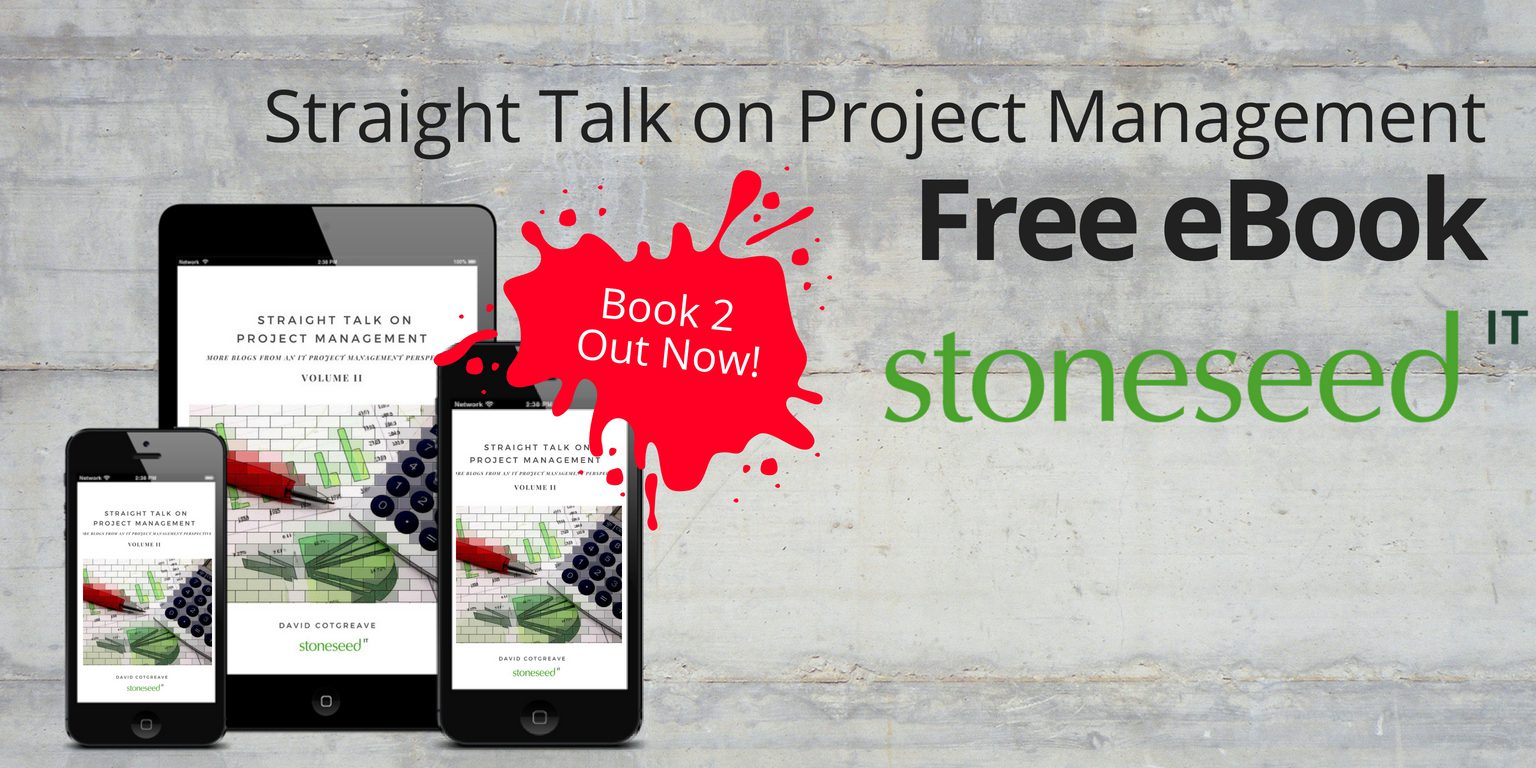
With the success of my first eBook, I am delighted to publish Volume II.
The book covers a wealth of topics from Stonseed’s Project Management as a Service and our IT services, to an array Project and Programme Management issues.
Volume II of Straight Talk on Project Management is now available for download as an online Flip Book, PDF. and as a Kindle book.
